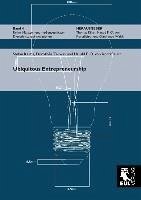The main goal of this book is to emphasize the impact of ubiquity on scientific entrepreneurship and to promote practical ways to make scientific entrepreneurship ubiquitous within universities in order to create more startups, for economic and societal benefit. The book begins with a look at the state of research on ubiquity in humanities and information technology. First, the ubiquity of God in theology is analyzed, with a focus on the three major religions ¿ Christianity, Islam, and Hinduism. Also, ubiquity in the field of law is investigated to examine whether and how ubiquity is described in jurisprudence and in how far it adds to the concept of ubiquity. Second, the field of IT is focused, where ubiquity occurs in the area of ubiquitous computing. The analysis of the state of research in humanities and information technology than allows the identification of certain characteristics of ubiquity. These characteristics are used as determinants to develop a model, consisting of a general ubiquitous entrepreneurship framework and a ubiquitous entrepreneurship board. This model was developed to ensure that each university can use the identified characteristics for ubiquity from theology and IT to individually define itself as an entrepreneurial university, and derive methods and instruments to promote ubiquitous entrepreneurship holistically.
Hinweis: Dieser Artikel kann nur an eine deutsche Lieferadresse ausgeliefert werden.
Hinweis: Dieser Artikel kann nur an eine deutsche Lieferadresse ausgeliefert werden.









